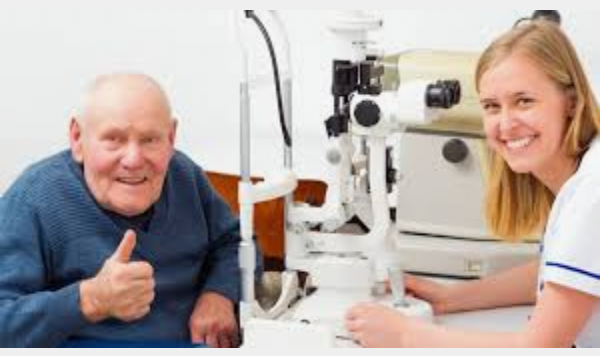
Welcome to Question of the Day #366
EyeTools Question of the Day #366
I have a new community eye care practice and I would like it to be successful. Do you have any tips?
Practices are busy and we need to be efficient with time spent on eye examinations, administration, and competing with other practices and online suppliers of glasses. We must focus on patient comfort, trust, and satisfaction. Take the time and make sure patients feel understood and cared for.
Enhance your chairside behaviour and gain trust. Doing so can help spread positive word of mouth and grow the practice while also enhancing clinician-patient relationships.
Some patients have vented their frustrations to me with previous eyecare specialists simply because they felt rushed or unable to voice the problems with their eyes or vision. It sounds obvious, but being present in the room with the patient can provide value and help build patient trust.
Wait until the patient has finished speaking before you reply. Listen properly and don’t simply be ‘waiting to speak’. Some patients may need help in keeping on track, however. Guide them back to the main topic if they digress.
I use a lot of repetition to get the main points across. If a patient tells me that they think they need stronger reading glasses once I have finished subjective refraction I tell them at that point, ‘You’re right, you do need stronger glasses for reading’. Then I repeat this at the end of the examination when I summarise. This also prepares the patient for new glasses early in the examination rather than at the end.
If a patient tells me that things are blurred with my driving glasses, then after the subjective refraction I tell them at that point ‘You’re right, your long-distance vision has changed and you need stronger driving glasses.’
If a patient tells me that they have watery eyes during the history and symptom taking I tell them that I can recommend something for that at the end of the examination. I make a note in the records to remind me to go back to that symptom and give my management.
At the end of the examination I give my summary:
You have cataracts in both eyes but they are not at the stage where you need surgery .
I need to make your varifocals stronger so that you can see the TV more clearly and read better.
You have a little bit of age-related macular degeneration but it is the dry type and I will monitor it for you.
Your eye pressures are in the normal range.
Remember to use a good reading lamp when you read.
I can help get rid of your watery eyes with these lid wipes.
I advise you to have another eye examination in 12 months’ time so I can monitor things and see if anything has changed.
Tell the patient what is going to happen next.
Make sure you answer any concerns that the patient raised during history and symptom taking. Nothing helps build trust more than when a patient knows they are being respected and feels understood.
Give them the chance to ask any questions about anything you have done or said.
Keep your word. If you tell a patient you are going to phone them to get more information then phone them. If you tell them you are going to order them a frame then order it and let them know when it has arrived.
If they have a test done with a clinical assistant and you aren’t in the practice then phone them and let them know the result. Nothing can break trust easier than not staying true to your word. Make an eye examination in your practice memorable, for all the right reasons.



1.jpg)



.jpg)
.jpg)



_(Instagram_Post).jpg)
.jpg)
_(1080_x_1080_px).jpg)


with_UP_Cabinet_Minister_Sh_Nand_Gopal_Gupta_at_OpticsFair_demonstrating_Refraction.jpg)
with_UP_Cabinet_Minister_Sh_Nand_Gopal_Gupta_at_OpticsFair_demonstrating_Refraction_(1).jpg)

.jpg)








.jpg)



.png)




